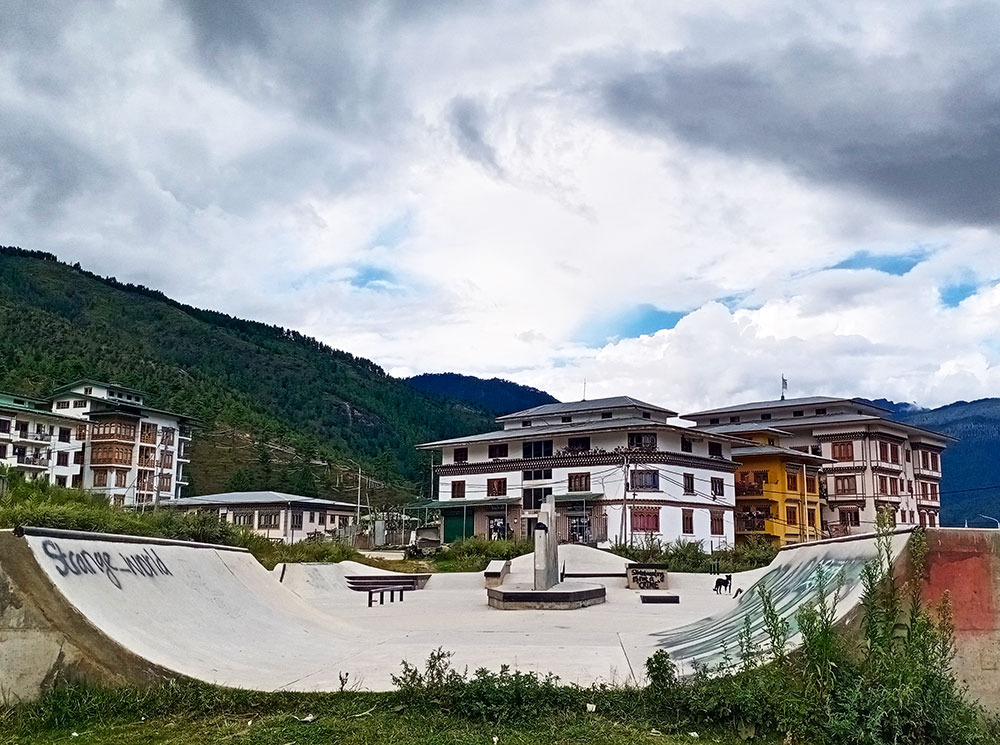The only swimming pool is closed while the capital has more than 20 archery ranges
Thinley Namgay
Lack of or limited sports facilities, especially international-standard infrastructure, is one of the biggest hurdles in the development of sports in the country.
Sports infrastructure with the 15 federations, four associations, and 15 dzongkhag sports associations (DSA) under the Bhutan Olympic Committee (BOC) are either not enough or of an insufficient standard, according to officials. Most of the facilities are in the capital, Thimphu.
The BOC functions primarily on financial support from the government, and most federations, associations, and DSA depend on the BOC for budget and international assistance. However, many say that the funds are insufficient for infrastructure development, as the federations and associations pay staff salaries and coordinate activities based on the allotted funds for the particular financial year.
Swimmer Sangay Tenzin trained in Thailand when preparing for the 2020 Tokyo Olympics, as there was no international standard swimming pool in the country. He trained with the support of FINA, the World Swimming Federation. Sangay Tenzin, who is in Thailand, said the lack of facilities impact athletes and the facilities we have today are not of international standards.
“Bhutan is not known for its sporting prowess, but if we change our ideas and respond quickly to the situation, I believe we will achieve excellent results sooner or later,” he said.
The small swimming pool that catered to many Bhutanese interested in swimming at the Swimming Pool Complex in Thimphu has remained closed since 2016. BOC official Kinley Tshering said it is unsure if the BOC will maintain it, or if the swimming pool building would be handed to other federations. A new swimming pool is under construction at Babena, Thimphu.
Officials from the federations and associations said the facilities should be the key priority in sports development. Bhutan Cricket Chief Executive Officer Damber S Gurung said infrastructure development depends on financial availability. “Without facilities, the coach can’t develop players, and players can’t showcase their skills.”
Damber S Gurung said the Gelephu international cricket ground is nearing completion and Bhutan Cricket is also working to develop a cricket ground in Thimphu.
Cricketers started using the Gelephu ground last year, although there is still some work to be completed.
“Once we have two international-standard grounds, we can host international tournaments. We are also looking at cricket tourism to generate revenue. Apart from infrastructure development, our priority is to become financially sustainable in the future,” Damber S Gurung said.
The most popular sport, football, has 13 registered clubs under the Bhutan Football Federation (BFF).
Most of these clubs are in Thimphu. During competitions, these clubs practice at Changlimithang and Changjiji grounds. Club officials said, owing to other activities at the two grounds, they do not get enough practice time.
BFF’s media and marketing head Phuntsho Wangdi said there are five football grounds under the BFF in Thimphu, Gelephu, Tsirang, and Samtse. “A new field is coming up in Babena, Thimphu, which will be used for the clubs. We will also build a ground in Dagana.”
The capital has 15 mini football pitches, four artificial football turfs, and four basketball courts owned by private individuals. However, many say the rates are beyond the affordability of many.
The capital city, meanwhile, has around 20 archery ranges, although many don’t meet the safety requirements. The taekwondo and basketball hall at the swimming pool complex requires maintenance.
Bhutan Tennis Federation General Secretary Tshering Namgay said: “I would suggest that the government prioritise building multi-sports facilities in bigger dzongkhags.”
“For instance, it serves the definition of multi-sport facilities if we have a football ground, athletic track, tennis, basketball, and volleyball courts along with a multi-sports hall in the vicinity. It can promote all the sports together,” Tshering Namgay said.


